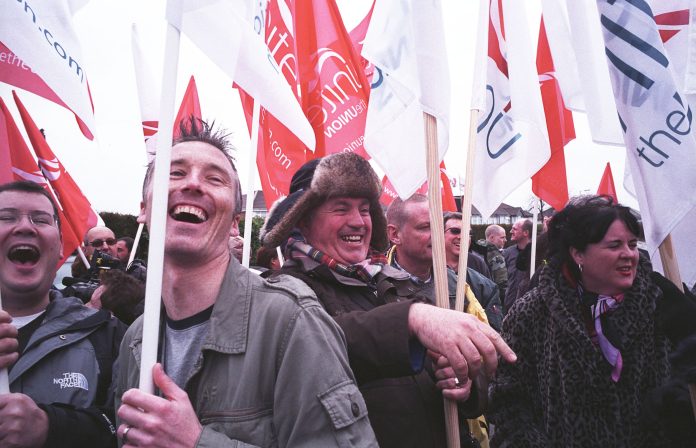Airport worker
Last week saw GMB and Unite members who are check-in agents at British Airways (BA) vote for industrial action.
On a turnout of 80%, 95% voted to strike. This reflects the extreme anger within the workforce that has been building for years.
Since the financial crisis of 2008 there have been waves of redundancies, coupled with wage freezes and almost continuous reorganisations. BA workers, pre-pandemic, were strong enough to resist this management onslaught.
As a result, management resorted to vicious cuts on new joiners’ pay and conditions. Thus BA management have deliberately created multiple layers of contracts within the same job function. New joiners were even denied trade union recognition, and this has had to be fought for.
Within weeks of the pandemic taking hold, in the spring of 2020, passenger traffic fell to almost zero. BA made a third of its workforce redundant and furloughed another third. BA called upon the government not to subsidise the industry because it hoped to outlast its rivals, and as a consequence bounce back to super-profitability once the lockdown was lifted.
BA immediately threatened to fire the workforce and rehire at a later date on inferior pay and conditions. With the airline at a standstill the workforce had no industrial power, and under this pressure agreed to take a 10% cut in wages.
Alongside these changes, managers ‘voluntarily’ agreed to take a 10% cut in pay. BA has now reinstated the management pay cut. However, for the workforce it has only offered a one-off 10% bonus that would arrive in three parts throughout the year.
On top of this wage cut, RPI inflation is in double figures. This would result in the employees’ standard of living falling by a fifth. Check-in staff are simply seeking the reinstatement of their wages to pre-pandemic levels. It is clear that many other groups of airline workers will be moving towards their own ballots over the summer.







